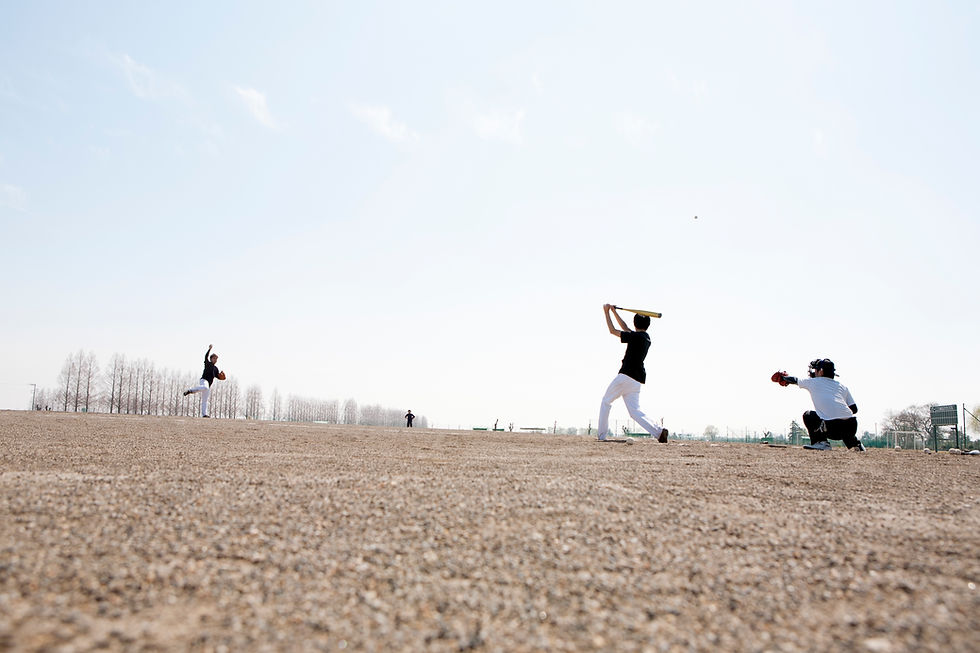How Does Training in Variable Weather Conditions Build Mental Endurance?
- Alyssa Zajdel, PhD

- Apr 28, 2025
- 4 min read
Updated: Dec 29, 2025

Athletes train hard to master their physical and technical skills, but mental endurance is just as critical to achieving peak performance. One often-overlooked way to develop mental toughness is by training in variable weather conditions. From scorching heat to biting cold, unpredictable rain to gusty winds, adapting to these challenges can transform the way athletes approach adversity—both on and off the field.
Understanding Mental Endurance
Mental endurance refers to an athlete’s ability to stay focused, resilient, and composed under pressure or during prolonged physical and mental challenges. While physical training builds stamina and strength, mental endurance helps athletes push through discomfort, stay motivated, and manage their emotions in demanding situations.
Training in variable weather conditions provides a natural environment for athletes to hone these mental skills. By embracing the unpredictable, athletes learn to maintain composure and perform consistently, regardless of external circumstances.
The Psychological Benefits of Training in Variable Weather
1. Increases Resilience to Discomfort
Adverse weather conditions, such as intense heat, heavy rain, or strong winds, create physical discomfort that athletes must overcome. Training in these conditions builds resilience by:
Forcing athletes to adapt to non-ideal circumstances.
Helping them learn to endure discomfort without losing focus.
Reinforcing the mindset that they can push through challenges.
For example, a runner who trains in both hot and cold weather will be better prepared to perform in a race, no matter the forecast.
2. Builds Focus and Concentration
Variable weather conditions introduce distractions, such as rain pelting the skin or wind throwing off balance. Training in these conditions teaches athletes to:
Tune out distractions and maintain focus on their goals.
Stay present by concentrating on immediate actions, like foot placement or breathing rhythm.
Adapt their strategies to the situation while keeping their overall objectives in mind.
3. Develops Emotional Regulation
Weather can evoke frustration, anxiety, or self-doubt—especially when conditions seem unfair. Training in challenging conditions helps athletes practice emotional regulation by:
Learning to accept what they cannot control, such as the weather.
Reframing negative thoughts into opportunities for growth, such as viewing a rainy practice as a chance to improve adaptability.
Cultivating patience and persistence when things don’t go as planned.
4. Strengthens Confidence in Adaptability
When athletes regularly train in varied weather, they build confidence in their ability to perform in any situation. This confidence carries over to competition, where they’re less likely to feel thrown off by unexpected challenges.
Practical Benefits of Weather-Based Training
Beyond psychological growth, training in variable weather conditions provides practical advantages:
Improved Decision-Making Under Pressure: Athletes learn to make quick adjustments, such as modifying their running stride on slippery ground or adjusting game strategies in windy conditions.
Physical Preparation for Competitions: Athletes who have trained in diverse environments are better acclimated to handle extreme temperatures, rain, or wind during competition.
Enhanced Team Cohesion: For team sports, weather training builds camaraderie as players work together to overcome shared challenges.
How to Train Safely in Variable Weather
While training in different weather conditions offers benefits, it’s essential to prioritize safety:
Prepare Proper Gear: Wear appropriate clothing, such as moisture-wicking layers in rain or breathable fabrics in heat, and use equipment suited for specific conditions.
Hydrate and Fuel Properly: Extreme weather can affect hydration and energy needs, so adjust accordingly.
Know Your Limits: Push through discomfort, but avoid unsafe extremes, such as running in lightning storms or excessive heat without adequate preparation.
Listen to Your Body: Recognize the difference between discomfort and danger, such as signs of hypothermia or heatstroke.
Mental Strategies for Weather Training
To get the most out of training in variable conditions, athletes can incorporate mental skills alongside physical practice:
Visualization: Imagine successfully performing in challenging weather before stepping into those conditions.
Goal Setting: Focus on small, achievable goals, like completing a set distance or maintaining technique, regardless of the weather.
Self-Talk: Use positive affirmations, such as “I am strong enough to handle this,” to counter negative thoughts.
Mindfulness: Stay present by paying attention to your breath, movements, and surroundings, rather than worrying about discomfort.
Applying Lessons to Competition and Life
Training in variable weather conditions equips athletes with skills that go beyond sports. By building mental endurance, athletes become better at handling stress, uncertainty, and adversity in other areas of life. They learn to:
Adapt quickly to new circumstances.
Persevere through challenges with confidence and focus.
Maintain composure in high-pressure situations.
Conclusion
Variable weather conditions are a natural testing ground for mental endurance. By embracing the unpredictability of nature, athletes not only enhance their ability to perform in any environment but also cultivate the resilience and focus necessary for success in sports and beyond. Whether it’s running through rain, enduring a cold snap, or battling wind during a match, each challenge faced in training strengthens an athlete’s mental game—and brings them one step closer to peak performance.
Struggling with mental endurance in challenging weather? Contact a member of our sport psychology team to develop strategies for success.
Legal Disclaimer
This blog post is for informational and educational purposes only and is not a substitute for mental health treatment, psychological services, or medical advice. Reading this post does not create a therapist-client relationship. If you are seeking support for your mental health or well-being, consider reaching out to a licensed mental health professional in your area.



